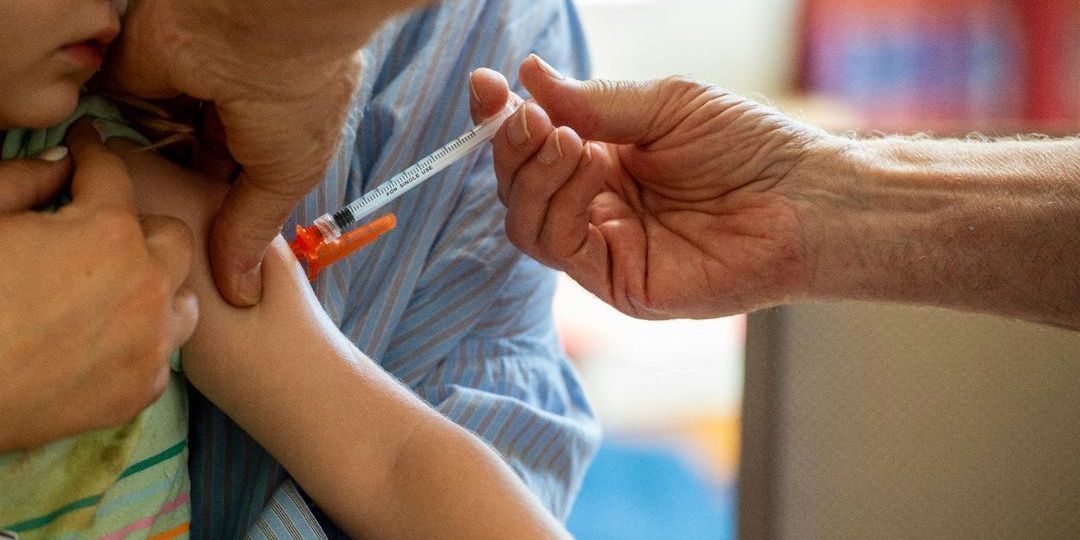
Social media posts claim Pfizer and Moderna’s clinical trial results show their Covid-19 shots put children at greater risk of contracting respiratory syncytial virus (RSV). This is false; experts say the allegation is a misinterpretation of the data, no such risk has been identified at a population level, and infant and toddler vaccination rates are too low to correlate with the uptick of RSV cases in Canada and the US.
“Evidence Suggests the COVID Shots Are Responsible for Soaring RSV Cases Throughout the U.S. & Canada,” says a November 3, 2022 Instagram post.
Similar claims spread on Facebook and Instagram as rising cases of RSV, which can cause the chest infection bronchiolitis in infants, spurred high rates of hospitalizations in several countries.
 Screenshot of an Instagram post taken November 10, 2022
Screenshot of an Instagram post taken November 10, 2022The same claim was published October 29, 2022 in a Substack post. The blog attributes the information to The Highwire, an online program hosted by Del Bigtree, CEO of one of the best-funded anti-vaccine organizations in the United States.
AFP has previously fact-checked Bigtree’s program, which was removed from YouTube in 2020 for violating its policies. Still, clips from The Highwire’s episode on RSV have circulated on video-sharing sites such as Rumble, Bitchute and Odysee.
Health authorities in Canada and the United States continue to recommend Covid-19 vaccines for those six months and older to prevent serious illness, hospitalization and death. Adverse events following vaccination are carefully monitored, and experts told AFP no association between the Covid-19 shots and an increased risk of RSV has been detected.
“There’s no data whatsoever to prove or to show that Covid vaccination makes kids more susceptible to RSV,” said Alon Vaisman, an infectious disease expert with the University Health Network in Toronto, on November 9. “If that were true — that Covid vaccination puts you at higher risk of infection — then we would have seen this impact a long time ago on all age groups, but we didn’t.”
Anthony Byrne, a respiratory infection researcher and physician at St. Vincent’s hospitals in Australia, told AFP for a previous fact check that Covid-19 vaccination will not result in less immunity to RSV.
“It simply makes no sense, the immune system is highly specific to literally millions of antigens. Immunity to one virus doesn’t reduce immunity to another,” he said in a July 13 email.
RSV spreading rapidly
RSV typically infects children by age two and is more commonly contracted in winter months. The airborne virus generally leads to cold-like symptoms such as runny nose, cough and fever that is normally mild, but in some cases can make infants seriously ill.
RSV is surging in Canada and the US, following a dramatic drop in cases in 2020.
“With a return to pre-pandemic activity (kids back at daycare/school, etc.) and more indoor contacts as the winter arrives in the Northern Hemisphere, RSV and other respiratory pathogen transmission is surging among a cohort of children with no previously acquired immunity,” said Ophelia Michaelides, manager of the Centre for Global Health at the University of Toronto, in a November 10 email.
Trial data misinterpreted
The Highwire segment features Jeffrey Jaxen, a self-described “researcher and writer,” discussing data that Moderna and Pfizer submitted to the US Food and Drug Administration (FDA) following clinical trials for their Covid-19 shots for children.
Jaxen said the trial data showed RSV infections were reported among 0.4 percent of children aged two to five years old who received the Moderna Covid-19 vaccine compared to 0.1 percent of placebo recipients within 28 days.
“Four times the amount of RSV in the vaccinated group compared to the unvaccinated group,” Bigtree said on his show.
But neither Jaxen nor Bigtree showed these figures to be statistically significant.
“We are talking about very small numbers here (eg: <0.1 percent vs 0.4 percent),” said Michelle Cohen, an Ontario physician, in a November 9 email. “So it’s quite a distortion to say that kids who received the vaccine have four times the RSV.”
And the same document Jaxen references says: “There is not a clear biological mechanism that would explain a causal association for certain respiratory infections but not others. Overall, the frequency and clinical course for these events do not appear unusual given the age group of the study population and the season (fall-winter) during which the study took place, and the observed imbalance could be due to chance.”
Similarly, in the Pfizer data Jaxen highlights, there were just five vaccinated children who reported an RSV infection, compared to three in the placebo group.
The FDA said the infections were not considered to be related to vaccination.
Vaisman said that given the low rates of Covid-19 vaccination among children, this would be an unlikely explanation for the RSV infection surge.
In Canada, the latest data show 6.5 percent of children up to four years old have received at least one Covid-19 shot. In the US, 10 percent of children aged six months to four years have received at least one dose.
“The number of kids in that age group actually vaccinated is quite low, but the numbers of RSV infection are extremely high,” Vaisman said. “So even that doesn’t really fit really on its face, to be an explanation.”
AFP reached out to the US Centers for Disease Control and Prevention for comment, but a response was not forthcoming.
More of AFP’s reporting on vaccine misinformation is available here.
